After a few issues of flirting with the stars of the story, issue four finally takes the time to introduce Laura and us with most of the major face of the Pantheon. At the end of the last issue, Laura and Cassandra found themselves being threatened by Baal, the de facto front man of the Pantheon who wants them to quit snooping around behind his back.
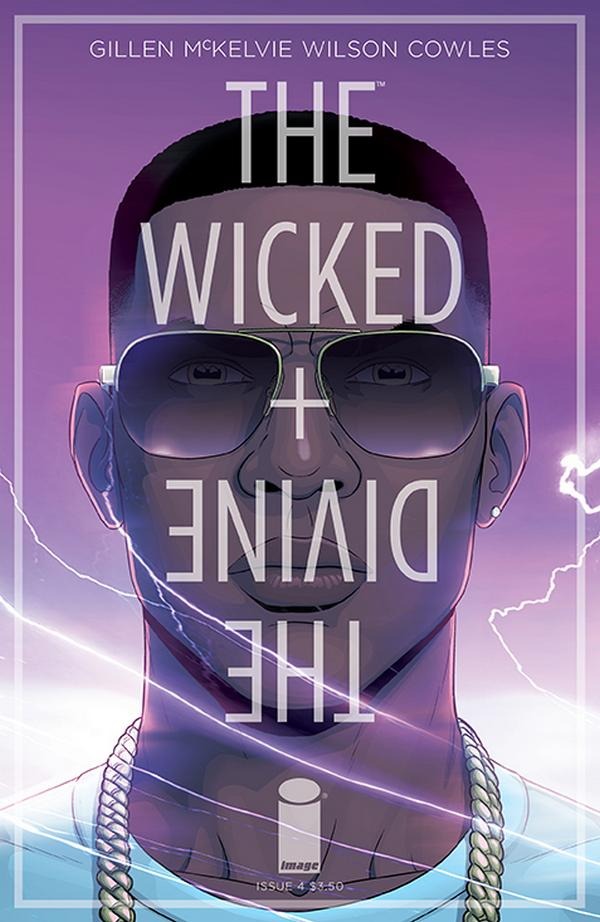
My favorite part of this cover are Baal’s goat eyes just barely being visible behind his shades. (Cover by Jamie McKelvie & Matt Wilson)
Following that initially very scary threat, we find that Baal was mostly just trying to intimidate our sleuths into accompanying him to Valhalla where Laura can get a stern talking to from none other than the mysterious Ananke in front of the most public facing of the gods. Cassandra is barred entry because she’s not a true believer (I guess? It’s possible she’s just not allowed in because she hasn’t built a personal connection with Lucifer like Laura has), but she still gets an earful of Baal’s philosophy of inspiration and why he thinks the Recurrence happens. Unlike Lucifer, who is nothing but cynical about her divinity and accompanying short life span, Baal seems to genuinely believe that there’s something important happening with the Recurrence. In a lot of ways he echoes the sentiments of Amaterasu back in issue one, but with way more swagger. It’s a nice character beat for Baal, since our first impression of him was as a brash, pugnacious guy who provides the party line that no one knows definitively that Lucifer is responsible for the judge’s death. In a story where everyone is massively preoccupied with image, something about Baal’s particular brand resonates as sincere where Lucifer’s cynicism or Baphomet and the Morrigan’s interpersonal drama seem deliberately performative. This is epitomized when Baal tells Cassandra in no uncertain terms that he knows his deal’s a bad one, but his existence isn’t about promoting his own personal happiness.
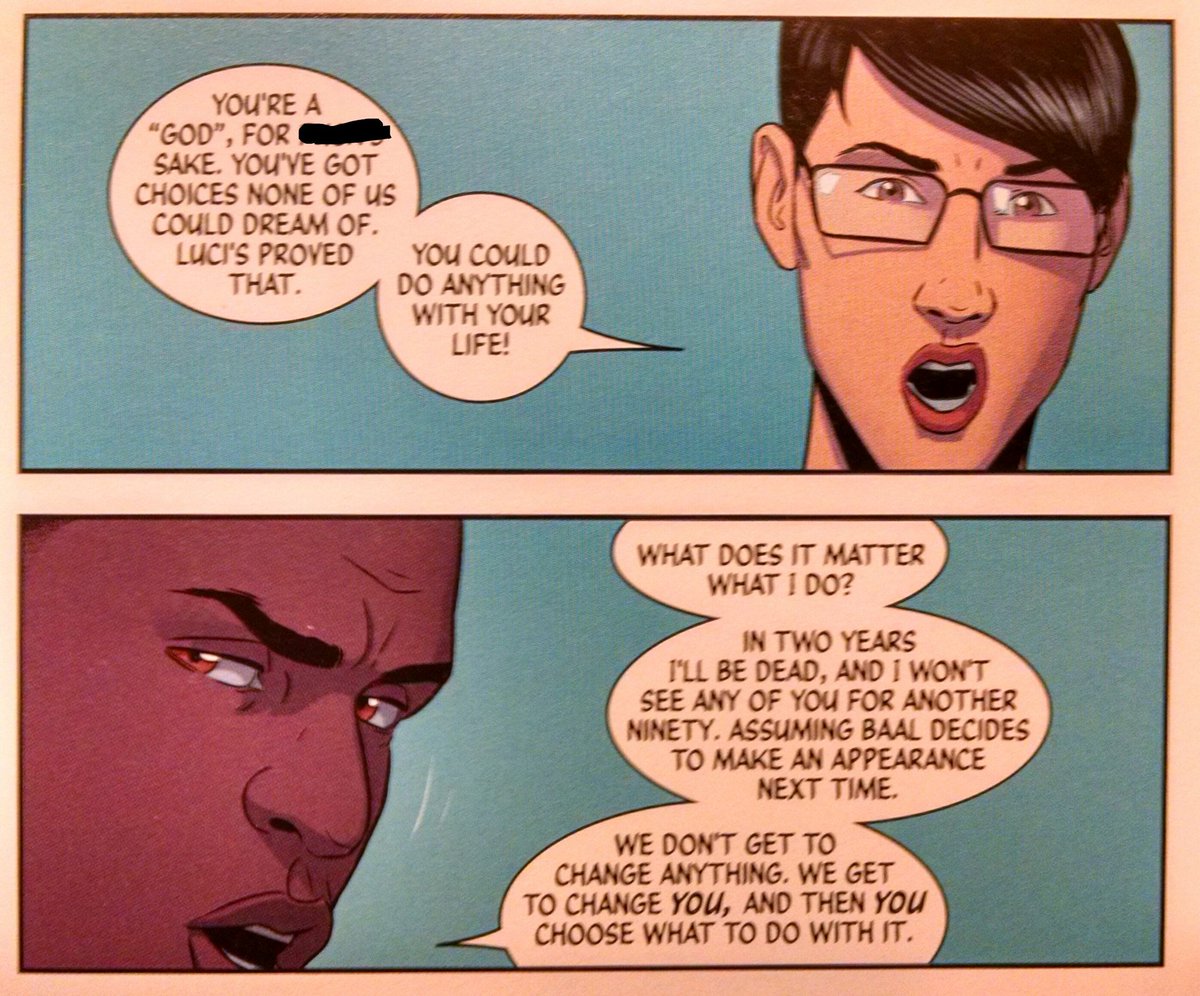
In re-reading this first arc, I’ve been struck by just how much of each issue is really just panels of talking heads having conversations. I still love it because McKelvie’s art is just that good. (Artwork by Jamie McKelvie, colors by Matt Wilson, letters by Clayton Cowles)
Of course, mixed up in Baal’s magnanimity is the undeniable sense that he thinks he’s better than everyone else. The tagline he generates for himself in the midst of his impromptu interview with Cassandra is, “I’ve always claimed I’m a god, even before I knew I was one.” Baal’s character concept is heavily inspired by the personas of famous hip-hop and R&B artists of the last decade (he’s clearly channeling Kanye with his “I am a god” talk), but it never comes across as obnoxious. Part of that is definitely because of Laura’s constant fan-girling (as with everything in this story, what we’re seeing here is filtered through her perception of things, and she is super into Baal), but Baal’s commitment to the idea that he is supposed to be an inspirational figure for people makes him feel much less like an egomaniac and more like someone who just needs to share his actual greatness with others. The major crux of his appeal is his reliance on the assumption of honesty. Baal doesn’t do false humility because he genuinely believes he’s great, and he offers other people the chance to believe in their own greatness.
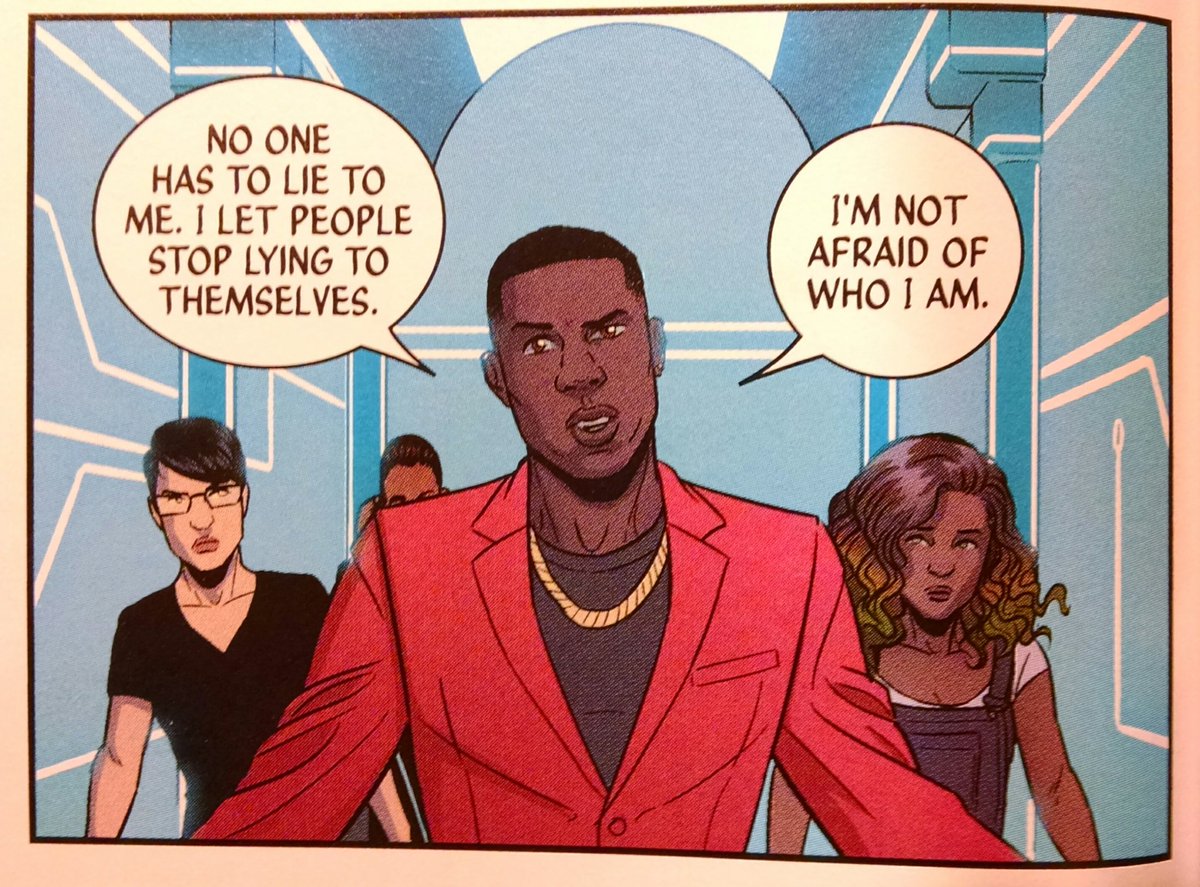
Considering Laura’s own sense of self-loathing, it’s easy to see why she finds Baal’s schtick so enticing. (Artwork by Jamie McKelvie, colors by Matt Wilson, letters by Clayton Cowles)
After our extended conversation with Baal, Cassandra gets left at the door so that Laura can meet half the Pantheon in person and have a chat with Ananke. Besides Amaterasu and Sakhmet, whom we met in issue one, the other gods that we finally meet here are Minerva and Woden. They’re still relatively sketchy since this is primarily an audience with Ananke, but we gather quickly that Minerva is really not happy with the whole dying young thing (she’s only twelve) and Woden really has a thing for tall Asian women. Ananke, for her part, is mostly mystery incarnate with only vague hints at why the gods do what they do (the big reason they don’t wreak more havoc on humanity: humans aren’t as powerless as they think).
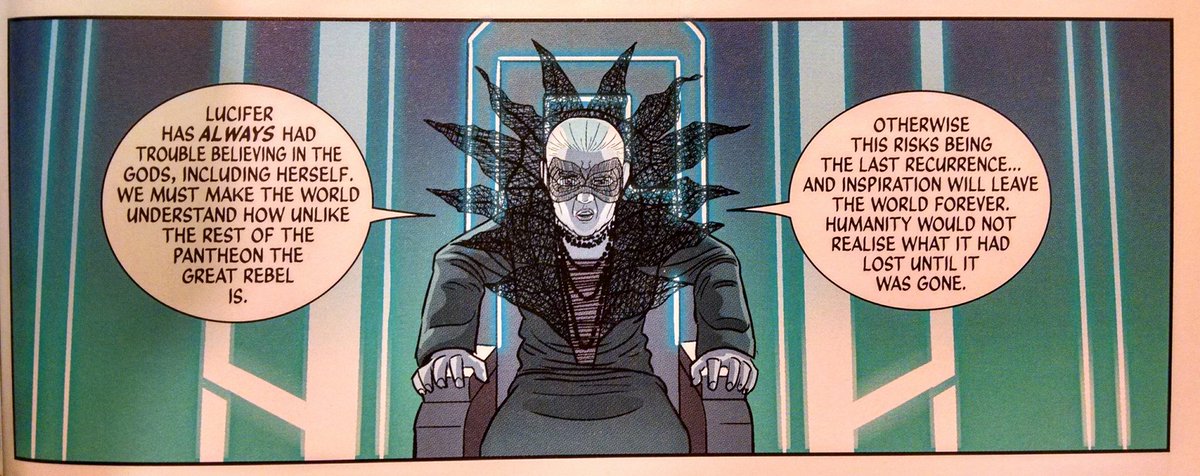
Ananke isn’t one for much explanation of her assertions, so we just have to take her word at this point about the Recurrence providing humanity with inspiration, however vague and ill-defined that idea might be. (Artwork by Jamie McKelvie, colors by Matt Wilson, and letters by Clayton Cowles)
Suffice it to say that Laura’s meeting with the Pantheon is not very productive at all; they’re generally in agreement that Lucifer should sit in jail for everyone else’s safety, and none of the gods are particularly bothered by the possibility that one among them murdered the judge.
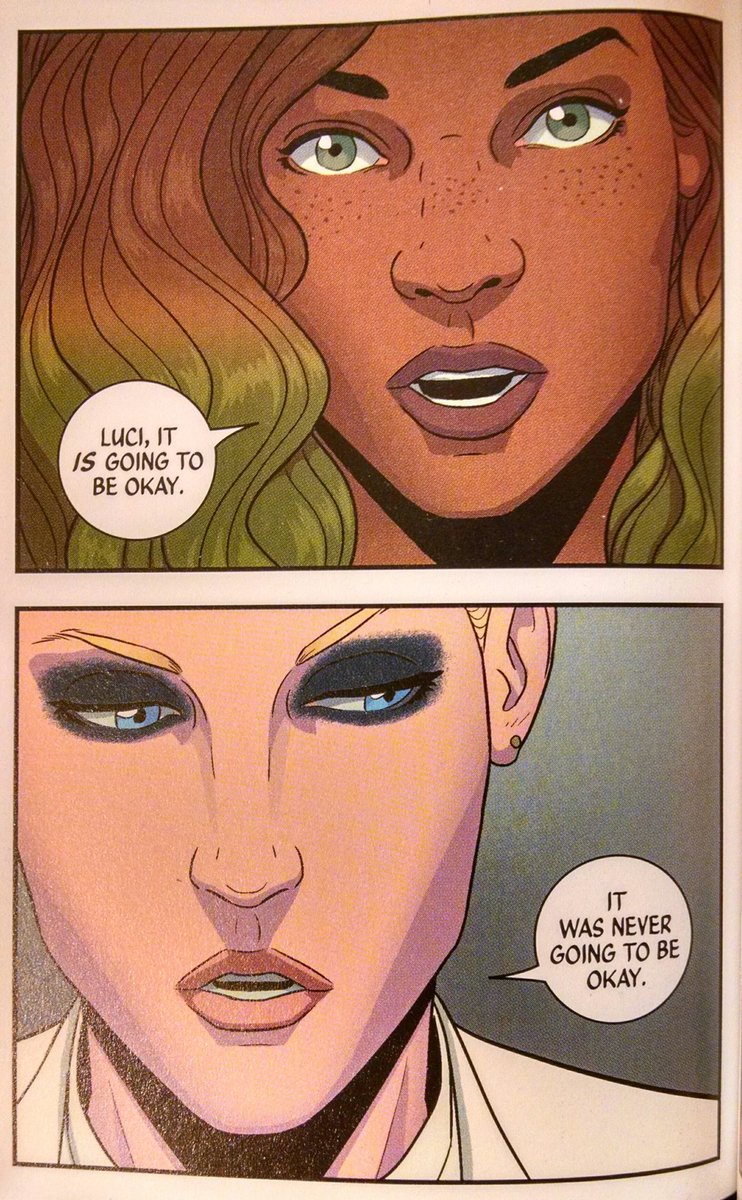
More talking head panels, and I still don’t care. Look at those faces! Poor Lucifer! (Artwork by Jamie McKelvie, colors by Matt Wilson, letters by Clayton Cowles)
The issue concludes with Laura reporting back to Lucifer to let her know that gods only help those who help themselves, which Lucifer takes in stride. Laura tries to assure her that it will turn out fine, but Lucifer knows how these stories work. She decides she’s had enough of playing by everyone else’s rules, so she performs some miracles (like the finger clicks were really the only way she could manifest her power) and breaks out of jail. This is, as you might imagine, not exactly what anyone else in the Pantheon wanted. Whatever’s going to happen next, we know it’s going to be bad; Lucifer’s assertion that “It was never going to be okay” reads as the first bit of absolute truth she’s told Laura since they met.
Advertisements Share this:




